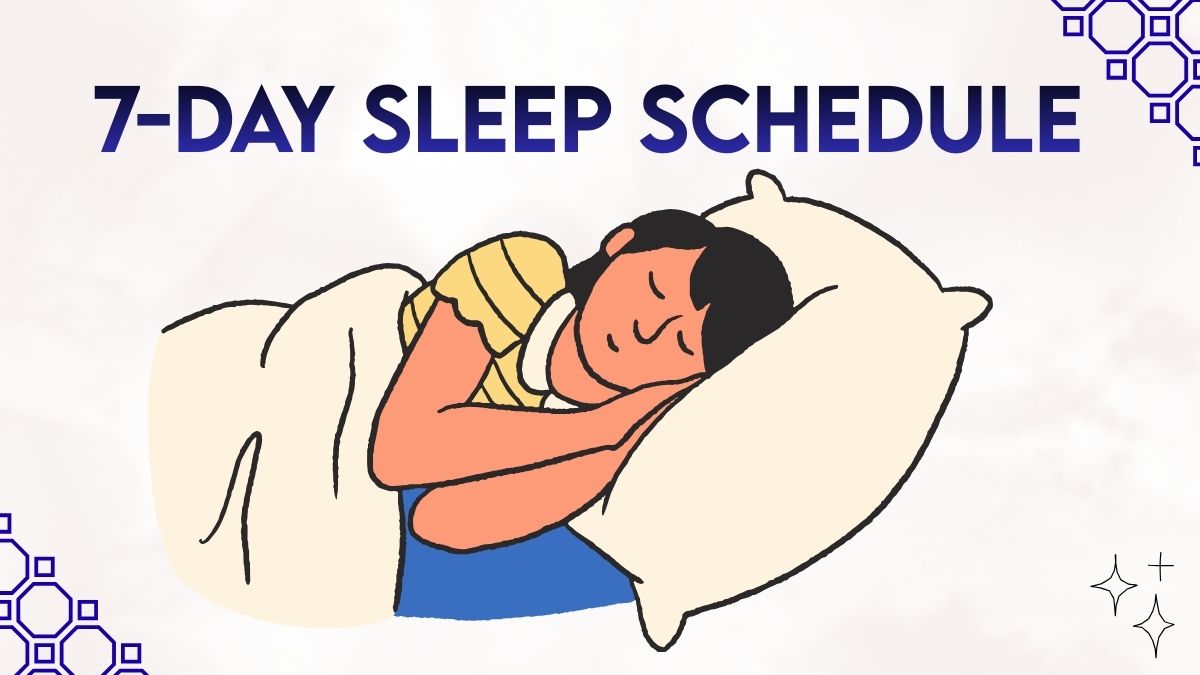The Bedtime Mistake That Ages Your Heart 10 Years Faster (I Made It for Decades)

For 20 years, I thought I was doing everything right for my heart—I exercised, ate well, and always got my 7-8 hours of sleep—until my cardiologist asked me one question that changed everything: “What time do you go to bed each night?”
Most people obsess over sleep duration. Seven hours minimum, eight is better. But we ignore something far more important: sleep timing. Research from 2024 shows an irregular sleep schedule increases heart disease risk by 26%. Getting your full eight hours doesn’t protect you if those hours keep shifting around.
You’re aging your heart through inconsistent bedtimes and wake times. Your cardiovascular health depends on when you sleep, not just how long. Every night you go to bed at a different time, your heart attack risk climbs.
In this guide, you’ll learn why irregular sleep is more dangerous than insufficient sleep. I’ll show you the specific heart damage caused by chaotic schedules, how to keep your bedtimes within 30-60 minutes of your usual time, and a 7-day action plan to fix your sleep patterns starting tonight.
Why Sleep Regularity Matters More Than Sleep Duration

Here’s what shocked me most: sleep regularity appears to be a stronger predictor of major cardiovascular events than sleep duration. A study of over 72,000 people found that irregular sleepers had a 26% higher risk of heart attack and stroke.
Think about that. You can get your full eight hours every night and still damage your heart if those hours keep shifting around.
Your body runs on an internal clock called your circadian rhythm. This clock controls your heart rate, blood pressure, and how your blood vessels work. When you go to bed at different times, you mess with this clock. Your heart rate spikes at the wrong times. Your blood pressure stays high when it should drop. Stress hormones flood your system when you should be calm.
Researchers use something called the Sleep Regularity Index to measure this. An SRI score of 77.1 lowered heart disease risk by 15%. A score of 80.8 cut risk by 18%. The pattern was even stronger in African Americans, who showed the highest risk from irregular sleep.

Getting enough sleep is important. But sleep timing consistency matters more. Your body needs to know when rest is coming so it can prepare your heart and blood vessels.
Your heart doesn’t just need rest—it needs predictable rest.
The Science: How Irregular Sleep Ages Your Heart Faster

The damage goes deeper than you might think. When you vary your sleep schedule, you’re not just tired—you’re literally aging your cardiovascular system.
One night of bad sleep activates genes tied to biological aging in your cells. Your telomeres—the protective caps on your DNA—get shorter. This is cellular senescence, and it speeds up how fast your body ages.
Adults who sleep at different times each night show more plaque in their arteries. Poor sleep patterns increase your risk of heart failure by 3.05 times. Heart attack risk jumps 2.63 times higher.
Your blood pressure stays high even after you finally get good sleep. The damage sticks around. Poor sleep ages your brain by about one year. Every point drop in your sleep score adds another six months of aging.
This isn’t just about feeling tired. It’s about your heart aging years faster than it should.
The “Sweet Spot” Bedtime for Heart Health

So when should you go to bed? Research points to a surprising answer.
A study of 88,000+ people found the best bedtime for heart health falls between 10 and 11 PM. People who fell asleep in this window had the lowest rates of heart disease.
Going to bed at midnight or later raised heart disease risk by 25%. Sleeping before 10 PM increased it by 24%. Why? When you sleep past midnight, you miss morning light. This light resets your body clock and keeps your circadian rhythm aligned.
Your bedtime doesn’t need to be exact. Staying within 30 to 60 minutes of your usual time works fine. Pick 10:30 PM one night and 11 PM the next—that’s okay.
But here’s the key: whatever bedtime you choose, stick with it.
Weekend Sleep-In: Heart Helper or Heart Hazard?

Good news for weekend sleepers: catching up may help more than previously thought.
Recent research shows people who get extra weekend sleep are nearly 20% less likely to develop heart disease. This compensatory sleep helps pay off your sleep debt from the week.
But there’s a catch. Moderately irregular sleepers still had an 8% higher risk. Those with extreme sleep chaos saw their risk jump 26%. Sleeping in on weekends helps, but wild swings in your schedule still hurt your heart.
The balance? An extra hour or two on Saturday is fine. Crashing for five extra hours isn’t.
Moderate flexibility is fine—chaos is not.
The 26% Risk: What Happens When Sleep Stays Irregular

Let’s be clear about what’s at stake.
Irregular sleepers face a 26% higher risk of major cardiovascular events. That means more heart attacks, strokes, and heart failure. These risks don’t happen overnight—they build slowly as your body struggles to keep up with your chaotic schedule.
Your blood pressure climbs and stays high. Inflammation spreads through your blood vessels. Plaque builds up in your arteries, narrowing the passages that carry blood to your heart and brain.
Adults with varying sleep patterns show poor circulation in their lower body. This is a warning sign your entire cardiovascular system is struggling. The heart attack risk from irregular sleep compounds over time. Each year of chaotic sleep adds more damage.
If you’re under 50, this matters even more. Sleep has a greater impact on cardiovascular disease in younger adults. Your irregular sleep today shapes your heart health for decades.
These aren’t small numbers—this is your heart’s future.
🛏️ 7-Day Sleep Reset — Cartoon Guide
Days 1–2: Set Your Anchor Times
Pick your bedtime + wake time (example: 10:30 PM → 6:30 AM). These stay the same for all 7 days.
Days 3–4: Adjust Slowly
Move bedtime 15 minutes earlier each night until you reach your anchor goal.
Days 5–7: Reset Your Rhythm
Get 15–20 min of sunlight right after waking. Start your wind-down 1 hour before bed (no screens!).
Your Sleep Environment
Cool room (60–67°F) • Blackout darkness • No screens 2 hrs before bed • Use white noise if needed.
Warning Signs
Morning BP spikes • Palpitations • All-day exhaustion • BP stays high. Seek help if chest pain or irregular heartbeat.
My 7-Day Sleep Schedule Reset (You Can Copy This)

Here’s exactly how I fixed my irregular sleep—and how you can too, starting tonight.
Day 1-2: Pick Your Times Choose a realistic bedtime and wake time. I picked 10:30 PM and 6:30 AM. Write them down. These are your anchor points for the next seven days, including weekends.
Day 3-4: Adjust Gradually If your current bedtime is 1 AM and you want 10:30 PM, don’t force it. Move your bedtime 15 minutes earlier each night. This prevents shocking your system. I moved from midnight to 11:45 PM, then 11:30 PM, working my way down.
Day 5-7: Lock It In Get 15-20 minutes of morning sunlight right after waking. This is your circadian rhythm reset button. No sunglasses. Just step outside with your coffee.

Start your wind-down routine one hour before bed. I shut off all screens at 9:30 PM. Read a book. Stretch. Keep the lights dim.
Track your consistency. I used a simple journal. My Sleep Regularity Index went from 65 to 82 in three weeks.
Yes, you’ll have occasional late nights. Stay within an hour of your target. Get back on track the next day.
Within two weeks, you’ll notice the difference. Within a month, your heart will thank you.
Fix Your Sleep Environment for Consistency

Even the best schedule fails without the right environment.
Keep your bedroom between 60-67°F. Your body temperature needs to drop to fall asleep. A cool room makes this happen faster.
Make it dark. Really dark. Blackout curtains work best. If you can’t install those, get a sleep mask. Any light signals your brain to stay awake, even street lamps or your alarm clock glow.
Remove all screens two hours before bed. The blue light blocks melatonin production. If you must use devices, turn on blue light filters.
White noise can help if you live somewhere loud. A fan works too.
Your bedroom should be a sleep sanctuary—nothing else.
Signs Your Irregular Sleep Is Damaging Your Heart

Your body will tell you when irregular sleep is taking its toll.
Morning blood pressure spikes are a red flag. If you wake up feeling your heartbeat pounding or your head throbbing, pay attention. Heart palpitations during the day—that flutter or racing feeling—are another warning sign.
You might sleep seven or eight hours but still feel exhausted all day. That’s not normal tiredness. It’s a sleep damage symptom telling you something’s wrong.
High blood pressure that stays elevated despite medication is serious. Sleep problems keep your blood pressure high for longer periods, even between doctor visits.
See a doctor if you experience chest discomfort, shortness of breath, or irregular heartbeats. These are heart health warning signs that need immediate attention.
Don’t ignore these warnings—they’re your heart asking for help.
Conclusion:
Sleep regularity matters more than sleep duration for your heart. Irregular sleep increases heart disease risk by 26%. The optimal bedtime falls between 10-11 PM, but consistency beats perfection every time.
You can fix this in seven days. A simple sleep schedule reset can transform your heart health. Consistent, restorative sleep helps control blood pressure and protects your cardiovascular system from accelerated aging.

Start tonight. Choose your bedtime, set your alarm for the same wake time tomorrow (and every day this week), and begin your sleep schedule reset. Your heart—and your future—depend on it.
Fixing your irregular sleep schedule for heart disease prevention is one of the simplest, most powerful changes you can make. The research is clear, the solution is actionable, and the time to start is now.






